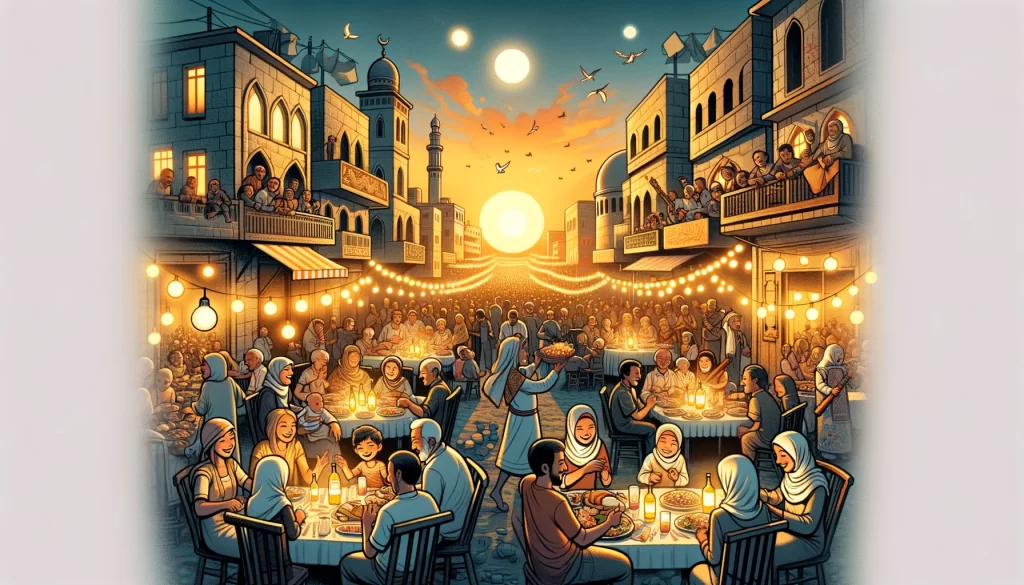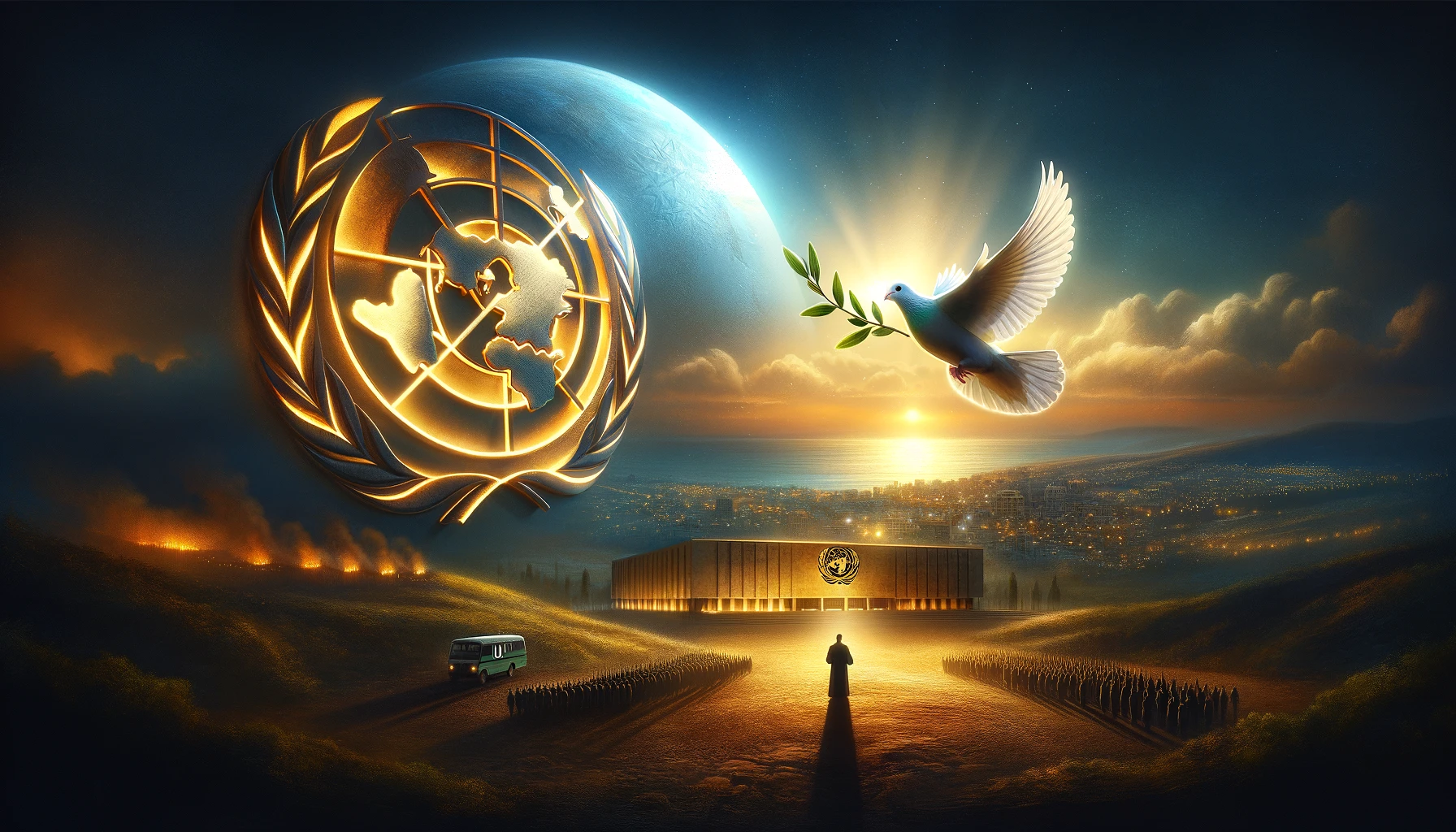On Monday, the UN Security Council passed a resolution demanding two main things: first, that everyone involved in the conflict in Gaza stop fighting immediately during the holy month of Ramadan; and second, that all hostages be released right away, no conditions attached.
Why This Is a Big Deal
This decision is very important because it’s the first time the Security Council managed to agree on asking for a ceasefire in Gaza after trying and failing four times before. This time, the United States, a key player in these discussions, chose not to veto the decision, which it could have done. Instead, the U.S. abstained, allowing the resolution to pass. Every other member of the council voted in favor.
What Was the Holdup Before?
Previously, there was a disagreement because the U.S. wanted any call for stopping the fighting to be connected to a deal about releasing hostages and to condemn Hamas. But on Friday just before this resolution passed, China and Russia didn’t agree with the U.S.’s proposal, blocking it from going through.
A Closer Look at the Resolution
The resolution was suggested by ten countries that are part of the Security Council but don’t have a permanent seat. These countries were Algeria, Ecuador, Guyana, Japan, Malta, Mozambique, Sierra Leone, Slovenia, South Korea, and Switzerland.
The resolution put forward by these countries acts as an official document, stating that everyone involved should obey international law, which determines how they should act during conflicts. It shows deep concern for attacks on everyday people and outright condemns terrorism and the capture of hostages. Moreover, the resolution points out the severe situation for those living in Gaza, calling for more aid and better protection for them.
The resolution makes it clear: everyone needs to stop fighting during Ramadan, aiming for this pause to lead to a lasting peace, and all hostages must be let go immediately and without any conditions.

Reaction from Israel
The Prime Minister of Israel, Benjamin Netanyahu, wasn’t happy about the possibility of this resolution passing without making sure it included demands for releasing hostages. He was so serious that he threatened to cancel planned meetings in Washington if the U.S. didn’t use its veto power. These meetings were supposed to discuss ways to avoid a ground invasion of a city called Rafah, where lots of people are seeking safety.
Despite Israel’s contention before the vote that it opposed two separate resolutions, one for ceasefire and the other for releasing hostages, the resolution did link the demand for a ceasefire with concerns about hostages.
This article is based on the following article:
https://www.axios.com/2024/03/25/gaza-ceasefire-resolution-un-security-council-veto

Background Information
With this background, readers should have a clearer understanding of the complexities involved in international relations, the role of the UN and its Security Council, and the significance of the ceasefire and humanitarian efforts in conflict zones like Gaza.
United Nations (UN)
- The UN is an international organization founded in 1945, aimed at promoting peace, security, and cooperation among the world’s nations. It has 193 member states and various organs and agencies through which it operates. One of its main bodies, relevant to our discussion, is the Security Council.
UN Security Council
- The Security Council is one of the six main parts of the UN. Its primary responsibility is maintaining international peace and security. It has 15 members: five permanent members (China, France, Russia, the United Kingdom, and the United States) with veto power, and ten non-permanent members elected for two-year terms. Decisions often require the agreement (or at least the non-opposition) of all five permanent members.
Veto Power
- Veto power allows any of the Security Council’s five permanent members to block any substantive resolution. This means if even one of these countries says “no” to a resolution, the resolution cannot be passed, regardless of how many other members vote in favor.
Ceasefire
- A ceasefire is a temporary stop to fighting, agreed upon by all parties involved in a conflict. It’s often the first step towards a more lasting peace agreement. Ceasefires can be called for many reasons, including humanitarian efforts, negotiations, or a reevaluation of strategies.
Ramadan
- Ramadan is a holy month for Muslims around the world, marked by fasting from dawn to sunset. It is a time for reflection, community, and prayer. In the context of conflict, calls for ceasefire during Ramadan aim to respect the sanctity of the period.
Gaza
- The Gaza Strip is a small region on the eastern coast of the Mediterranean Sea, bordered by Israel and Egypt. It has been a significant flashpoint in the Israeli-Palestinian conflict. The territory is densely populated and has faced numerous conflicts, leading to severe humanitarian situations.
International Law
- International law comprises rules and norms governing the relations between states and other entities at the international level. It covers a wide range of issues, including human rights, war, trade, and the environment. In conflict situations, international law includes regulations intended to protect non-combatants and prisoners, and to govern the conduct of hostilities.
Terrorism
- Terrorism refers to the use of violence and threats to intimidate or coerce, especially for political purposes. The term is often used in international relations to describe acts committed by non-state groups that target civilians or non-combatants.
Humanitarian Situation
- A humanitarian situation refers to conditions in which large groups of people are in need of emergency assistance due to conflicts, natural disasters, or other crises. Assistance can include food, water, shelter, medical care, and protection from harm.

Debate/Essay Questions
- How effective are UN resolutions in resolving conflicts?
- Should countries with veto power be allowed to abstain from voting on resolutions that address international security and humanitarian crises?
Please subscribe to Insight Fortnight, our biweekly newsletter!
